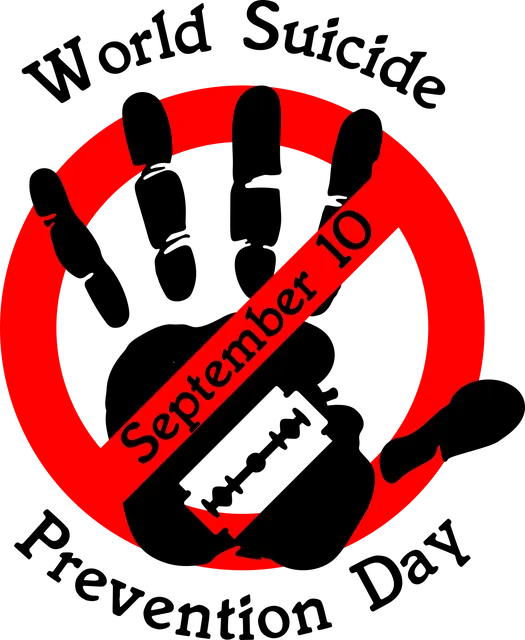Mental wellness self-assessment tools, modeled after Boulder Kaiser Permanente's comprehensive mental health coverage, empower individuals to take charge of their mental well-being. These tools facilitate self-reflection, helping users recognize patterns, track symptoms, and assess overall mental health. By integrating practices like Mindfulness Meditation and Mental Wellness Journaling, individuals can proactively manage stress, anxiety, and burnout—key aspects covered by Boulder Kaiser Permanente's plans. This proactive approach fosters a culture of self-care, leading to improved mental health outcomes. Boulder Kaiser Permanente's coverage offers accessible therapy, counseling, and support groups, while also revolutionizing dialogue through educational programs focused on conflict resolution and lasting strategies. Their tools are inclusive, user-friendly, and adaptable, emphasizing evidence-based practices like compassion cultivation and empathy building. Continuous improvement is measured through KPIs linked to mental health outcomes, including user engagement, satisfaction, and symptom changes.
Mental wellness self-assessment tools play a pivotal role in individual awareness and support. In this article, we explore the development of such tools, with a focus on the innovative practices employed by Boulder Kaiser Permanente (BKP), a leading healthcare provider known for its comprehensive mental health coverage.
We’ll delve into key components that make these tools effective, BKP’s strategic implementation, and methods to measure success. By understanding these elements, we aim to empower individuals in navigating their mental wellness journeys.
- Understanding Mental Wellness Self-Assessment Tools
- The Role of Boulder Kaiser Permanente Mental Health Coverage
- Identifying Key Components for Effective Tools
- Development and Implementation Strategies
- Measuring Success and Continuous Improvement
Understanding Mental Wellness Self-Assessment Tools

Mental wellness self-assessment tools play a pivotal role in empowering individuals to take charge of their mental health, much like Boulder Kaiser Permanente’s comprehensive mental health coverage supports its community. These tools serve as a gateway to self-reflection and understanding, enabling people to recognize patterns, track symptoms, and assess overall well-being. By incorporating practices such as Mindfulness Meditation and Mental Wellness Journaling Exercises, individuals can proactively manage stress, anxiety, and potential burnout, key aspects often covered under mental health coverage like that provided by Boulder Kaiser Permanente.
Effective self-assessment tools offer guidance tailored to individual needs, whether one is navigating life’s challenges or seeking ways to enhance resilience. They provide a structured yet personalized framework for evaluating mental wellness, encouraging users to engage in introspective activities. This proactive approach not only complements healthcare coverage but also fosters a culture of self-care and well-being, ultimately contributing to improved mental health outcomes.
The Role of Boulder Kaiser Permanente Mental Health Coverage

Boulder Kaiser Permanente’s mental health coverage plays a pivotal role in promoting emotional well-being within the community. Their comprehensive insurance plans are designed to ensure access to a wide range of mental wellness services, including therapy, counseling, and support groups. This accessibility is crucial for individuals seeking help with managing stress, anxiety, depression, or other mental health concerns. By covering these essential services, Kaiser Permanente empowers people to take proactive steps towards improving their inner strength and overall mental resilience.
The organization’s commitment to mental health extends beyond coverage; they actively foster a culture of open dialogue and support. Through various initiatives and educational programs, Kaiser Permanente educates its members about the importance of emotional well-being and provides tools for effective conflict resolution techniques. This holistic approach encourages individuals not only to seek help but also to develop lasting strategies for maintaining good mental health, thereby revolutionizing the way Boulder residents perceive and address their psychological needs.
Identifying Key Components for Effective Tools

In developing effective self-assessment tools for mental wellness, it’s essential to identify and incorporate key components that resonate with users across diverse backgrounds. At Boulder Kaiser Permanente, we’ve recognized several critical elements for successful implementation. Firstly, mental health coverage should be comprehensive, addressing not just symptoms but also promoting holistic well-being. This involves integrating evidence-based practices such as compassion cultivation techniques and empathy building strategies, which have proven effective in enhancing mental resilience and fostering positive mindsets.
Furthermore, user-friendly interfaces and intuitive navigation are paramount to encourage consistent usage. Tools should be adaptable to cater to different needs, whether it’s stress management for busy professionals or mindfulness exercises for those dealing with chronic conditions. By combining scientific validity with practical usability, self-assessment tools can become valuable companions on the journey towards optimal mental wellness.
Development and Implementation Strategies

The development of self-assessment tools for mental wellness is a strategic process that requires careful planning and execution. These tools play a pivotal role in fostering personalized mental health care, especially when integrated into existing healthcare systems like Boulder Kaiser Permanente’s mental health coverage. The first step involves identifying key areas of focus, such as stress management, emotional regulation, and symptom tracking, to ensure the tool is comprehensive yet user-friendly. Collaborating with mental health professionals and leveraging evidence-based practices can guide the creation of valid and reliable assessments.
Implementing these tools effectively demands a multi-faceted approach. This includes designing intuitive interfaces accessible through various platforms, ensuring data privacy and security, and providing clear instructions for self-administration. Mental Illness Stigma Reduction Efforts can be incorporated to make the assessment process less intimidating. Additionally, Resilience Building and Mental Health Education Programs Design should accompany tool rollout to empower individuals with coping strategies and promote mental wellness awareness.
Measuring Success and Continuous Improvement

Measuring success in mental wellness self-assessment tools is paramount to ensuring their effectiveness and relevance. At Boulder Kaiser Permanente, we focus on aligning tool development with key performance indicators (KPIs) that reflect improved mental health outcomes. These KPIs could range from tracking user engagement rates and satisfaction scores to monitoring changes in symptoms over time. By analyzing these metrics, we can pinpoint areas of strength and weakness, facilitating continuous improvement.
This iterative process involves regularly reviewing tool data, gathering feedback from both users and healthcare providers, and incorporating cultural competency training to address diverse needs. The integration of Self-Care Practices and Confidence Boosting strategies within the assessment tools further enhances their impact, empowering individuals to take charge of their mental wellness journeys. Through these combined efforts, we strive to create dynamic resources that not only meet but exceed the evolving needs of our community.
Mental wellness self-assessment tools play a pivotal role in empowering individuals to take charge of their mental health, especially with the support of comprehensive programs like Boulder Kaiser Permanente’s mental health coverage. By identifying key components and implementing effective strategies, these tools can significantly enhance access to care. Continuous improvement, measured through robust assessment methods, ensures that resources remain aligned with evolving needs, fostering a holistic approach to mental wellness in communities served by progressive healthcare providers such as Boulder Kaiser Permanente.






